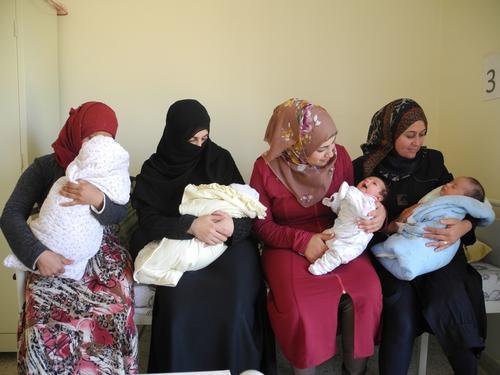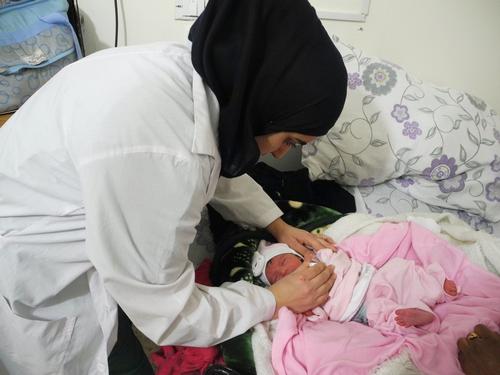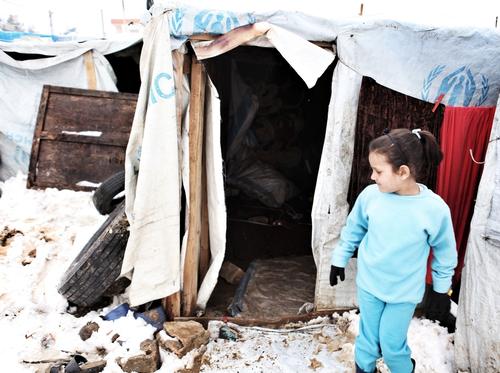Médecins Sans Frontières (MSF) teams at the mother and child care center in Majdal Anjar, Lebanon work hard to ensure healthy pregnancy and safe delivery for Syrian refugees.
“I still remember the first child born at our centre,” says MSF midwife Wesal. “Her name was Ghazal. The team was very excited about opening of the centre and rejoiced when she was born; each one of us felt that Ghazal was our daughter.”
Ghazal’s mother Hansa, a young Syrian woman from Idlib, remembers the delivery well. “We arrived to the centre at around 4am; the medical team welcomed us warmly. I remember that the weather was cold, so they turned on the heat and started preparing me for labour.”
“My delivery was easy, thank God. I spent the next 24 hours after delivery with my daughter under the supervision of the medical team at the centre. They were like family to me, so I did not feel like a stranger despite the fact that my mother and family were still in Idlib.”

Majdal Anjar, considered one of the poorest regions in Lebanon, has hosted more than 80,000 Syrian refugees since the beginning of the Syrian crisis in 2011. MSF opened the new mother and child care centre in February 2016 to provide free reproductive health services and deliveries to more than 16,000 women of child-bearing age in the Bekaa area, specifically in the village of Majdal Anjar and its surroundings.
The mother and child care centre in Majdal Anjar is the third centre that MSF runs in Lebanon – with two others in Arsal, in the Bekaa area, and Shatila in Beirut. These centres offer free-of-charge assistance for normal deliveries, as well as prenatal care, antenatal care and postnatal care, in an effort to reduce maternal mortality. There are also reproductive health and family planning services available from a specialised medical team, committed to ensuring healthy pregnancy and safe delivery for all women.
Each month, MSF teams assist around 100 natural births at the centre. In the event of a caesarean delivery or other complications during childbirth, the medical teams are able to stabilise the patient’s condition before moving her to one of the referral hospitals in the region.
“Referrals are not only done in the case of emergency, but also when a mother or child presents with problems that might prevent a normal delivery in our clinic. These health problems are detected from the routine visits to our clinic, starting from the fourth month of pregnancy,” says the centre’s supervisor, Ms Mariam El Masri.
Hamida, a Syrian refugee who recently gave birth at the MSF mother and child care centre, says that these repeated visits to the centre during pregnancy were very important in her case. Throughout her prenatal stages, the midwife worked with a female gynaecologist to make sure that both she and the foetus were in good condition and that she would be able to deliver her son Khaled naturally at the Centre.
“What touches me most is seeing women who are in dire need of assistance come to the centre to give birth and then leave satisfied and happy with our services,” says midwife Wesal.
The MSF mother and child care centre in Majdal Anjar is open day and night, seven days a week, to receive patients including Syrian refugees and those groups most in need.





